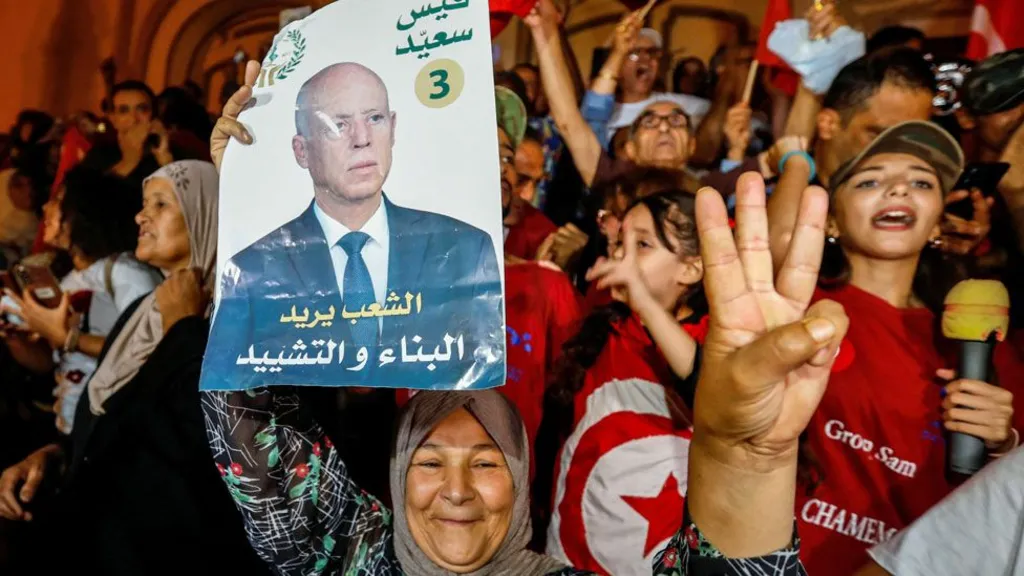Tunisian president wins second term with landslide
3 min read

In a highly contentious election, Tunisian President Kais Saied has won a second term, garnering over 90% of the votes, according to the electoral commission. The election, held on Sunday, has drawn sharp criticism from rights groups and observers who questioned its fairness, particularly as only 29% of the more than nine million registered voters participated.
Out of a crowded field of potential candidates, only two were permitted to challenge Saied, including businessman Ayachi Zammel, who managed to secure 7% of the vote despite being sentenced to 12 years in prison for falsifying documents just five days prior to the election. The third candidate, former lawmaker Zouhair Maghzaou, received nearly 2% of the votes.
The election atmosphere was notably subdued, lacking the usual campaign rallies and public debates that characterize democratic processes. Instead, the streets were lined with campaign posters overwhelmingly supporting Saied, while five political parties called for a boycott, expressing doubts about the elections’ legitimacy.
Tunisia has a unique place in the history of the Arab world, being the birthplace of the pro-democracy protests that erupted in late 2010. These protests culminated in the ousting of long-time autocrat Zine El Abidine Ben Ali in early 2011, leading to widespread hopes for a more democratic future. Initially viewed as a beacon of democracy in the region, Tunisia’s political landscape has shifted dramatically since Saied, a former law professor, took office in 2019.
Saied’s presidency has been marked by a series of controversial actions that have consolidated his power. He suspended parliament, rewrote the constitution, and implemented measures that critics argue have undermined democratic institutions. His administration has been accused of suppressing dissent, with many political opponents and dissidents arrested in the lead-up to the election.
Preliminary results indicate that Saied received 2,438,954 favorable votes, which marks a significant margin over his competitors. The Independent High Authority for Elections (ISIE) stated that the final results of the presidential election will be announced early next month.
Amnesty International and other human rights organizations have raised alarms over what they describe as a “worrying decline in fundamental rights” under Saied’s government. The atmosphere of discontent surrounding his administration has intensified, with many citizens feeling that their democratic rights are being systematically eroded.
Despite the growing criticism, Saied has remained defiant, claiming that he is battling a “corrupt elite” and labeling his opponents as “traitors.” His rhetoric suggests a determination to pursue what he views as necessary reforms, even at the cost of democratic norms.
The election marks Tunisia’s third presidential vote since the fall of Ben Ali, who ruled for over two decades before being ousted. His departure was initially seen as a victory for the Tunisian people, sparking hope for democratic governance. However, the recent electoral developments have left many questioning whether that hope has been squandered under Saied’s increasingly authoritarian rule.
As the final results loom, the implications of Saied’s victory could reverberate throughout Tunisian society, potentially stifling the democratic aspirations that ignited the Arab Spring. The international community will be watching closely, as Tunisia’s political stability is critical not only for the country itself but also for the broader North African region.
With discontent brewing among the populace and calls for democratic accountability growing louder, it remains to be seen how Saied will navigate the challenges of a nation that once led the charge for democracy in the Arab world. As Tunisia embarks on another term under Saied, the prospects for democratic governance and human rights in the country appear increasingly uncertain.